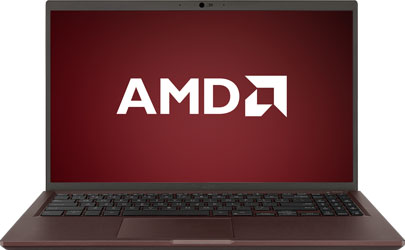Report an Error
AMD Radeon 760M
- Graphics Processor
- Phoenix
- Cores
- 512
- TMUs
- 32
- ROPs
- 16
- Memory Size
- System Shared
- Memory Type
- System Shared
- Bus Width
- System Shared
Recommended Gaming Resolutions:
- 1600x900
- 1920x1080
- 2560x1440
The Radeon 760M is a mobile integrated graphics solution by AMD, launched on January 4th, 2023. Built on the 4 nm process, and based on the Phoenix graphics processor, the device supports DirectX 12 Ultimate. This ensures that all modern games will run on Radeon 760M. Additionally, the DirectX 12 Ultimate capability guarantees support for hardware-raytracing, variable-rate shading and more, in upcoming video games. Unlike the fully unlocked ROG Ally Extreme GPU, which uses the same GPU but has all 768 shaders enabled, AMD has disabled some shading units on the Radeon 760M to reach the product's target shader count. It features 512 shading units, 32 texture mapping units, and 16 ROPs. The card also has 8 raytracing acceleration cores. The GPU is operating at a frequency of 800 MHz, which can be boosted up to 2599 MHz.
Its power draw is rated at 15 W maximum. Radeon 760M is connected to the rest of the system using a PCI-Express 4.0 x8 interface.
Its power draw is rated at 15 W maximum. Radeon 760M is connected to the rest of the system using a PCI-Express 4.0 x8 interface.
Graphics Processor
Integrated Graphics
- Release Date
- Jan 4th, 2023
- Generation
-
Navi III IGP
(Phoenix Mobile)
- Predecessor
- Navi II IGP
- Production
- Active
- Bus Interface
- PCIe 4.0 x8
Relative Performance
Based on TPU review data: "Performance Summary" at 1920x1080, 4K for 2080 Ti and faster.
Performance estimated based on architecture, shader count and clocks.
Clock Speeds
- Base Clock
- 800 MHz
- Boost Clock
- 2599 MHz
- Memory Clock
- System Shared
IGP Variants
- Ryzen 5 7640HS: 2599 - 2800 MHz
Memory
- Memory Size
- System Shared
- Memory Type
- System Shared
- Memory Bus
- System Shared
- Bandwidth
- System Dependent
Render Config
- Shading Units
- 512
- TMUs
- 32
- ROPs
- 16
- Compute Units
- 8
- RT Cores
- 8
- L0 Cache
- 32 KB per WGP
- L1 Cache
- 128 KB per Array
- L2 Cache
- 2 MB
Theoretical Performance
- Pixel Rate
- 41.58 GPixel/s
- Texture Rate
- 83.17 GTexel/s
- FP16 (half)
- 10.65 TFLOPS (2:1)
- FP32 (float)
- 5.323 TFLOPS
- FP64 (double)
- 332.7 GFLOPS (1:16)
Board Design
- Slot Width
- IGP
- TDP
- 15 W
- Outputs
- Portable Device Dependent
- Power Connectors
- None
Graphics Features
- DirectX
- 12 Ultimate (12_2)
- OpenGL
- 4.6
- OpenCL
- 2.1
- Vulkan
- 1.3
- Shader Model
- 6.7
Phoenix GPU Notes
| Generation: Navi III Ray Tracing Cores: 2nd Gen Infinity Cache: 2nd Gen Graphics/Compute: 11.0.1 Shader ISA: GFX11.0 (gfx1103) Display Core Next: 4.0 Video Core Next: 4.0 Per SIMD32: - 10 KB Scalar Register File Per CU: - 16 KB Vector Data Cache - 64 KB Local Data Share (GCN-Mode) Per WGP: - 16 KB Scalar Data Cache / K Cache - 32 KB Instruction Cache - 128 KB Local Data Share |
Apr 27th, 2024 05:17 EDT
change timezone
Latest GPU Drivers
New Forum Posts
- im new to throttelstop and i think i messed it up by copying others any hints would be very much aprreciated (6)
- hacked (79)
- Ryzen Owners Zen Garden (7247)
- Post your Speedtest.net Speeds! (2256)
- Should I install Windows 10 or 11 for my new device (5)
- TechPowerUp Screenshot Thread (MASSIVE 56K WARNING) (4214)
- wireless mic for pc (1)
- My mouse randomly stops working (2)
- Horizontal black lines popping up on my screen? (14)
- MSI Stealth GS65 9SF settings after repaste (0)
Popular Reviews
- Ugreen NASync DXP4800 Plus Review
- HYTE THICC Q60 240 mm AIO Review
- MOONDROP x Crinacle DUSK In-Ear Monitors Review - The Last 5%
- Upcoming Hardware Launches 2023 (Updated Feb 2024)
- Thermalright Phantom Spirit 120 EVO Review
- FiiO K19 Desktop DAC/Headphone Amplifier Review
- Quick Look: MOONDROP CHU 2 Budget In-Ear Monitors
- AMD Ryzen 7 7800X3D Review - The Best Gaming CPU
- Alienware Pro Wireless Gaming Keyboard Review
- ASUS Radeon RX 7900 GRE TUF OC Review
Controversial News Posts
- Windows 11 Now Officially Adware as Microsoft Embeds Ads in the Start Menu (137)
- Sony PlayStation 5 Pro Specifications Confirmed, Console Arrives Before Holidays (117)
- NVIDIA Points Intel Raptor Lake CPU Users to Get Help from Intel Amid System Instability Issues (106)
- AMD "Strix Halo" Zen 5 Mobile Processor Pictured: Chiplet-based, Uses 256-bit LPDDR5X (103)
- US Government Wants Nuclear Plants to Offload AI Data Center Expansion (98)
- AMD's RDNA 4 GPUs Could Stick with 18 Gbps GDDR6 Memory (95)
- Developers of Outpost Infinity Siege Recommend Underclocking i9-13900K and i9-14900K for Stability on Machines with RTX 4090 (85)
- Windows 10 Security Updates to Cost $61 After 2025, $427 by 2028 (84)

